Erwin S. Strauss is an American author, science fiction fan, noted member of the MITSFS, and filk musician, born in Washington, D.C. He frequently is known by the nickname "Filthy Pierre". He was injured descending a stairway at SMOFcon 41in December 2023, and in January 2024 announced his retirement.

Cory Efram Doctorow is a Canadian-British blogger, journalist, and science fiction author who served as co-editor of the blog Boing Boing. He is an activist in favour of liberalising copyright laws and a proponent of the Creative Commons organization, using some of its licences for his books. Some common themes of his work include digital rights management, file sharing, and post-scarcity economics.

HarperCollins Publishers LLC is a British-American publishing company that is considered to be one of the "Big Five" English-language publishers, along with Penguin Random House, Hachette, Macmillan, and Simon & Schuster. HarperCollins is headquartered in New York City and London and is a subsidiary of News Corp.
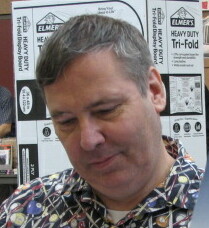
"The Abolition of Work" is an essay written by Bob Black in 1985. It was part of Black's first book, an anthology of essays entitled The Abolition of Work and Other Essays published by Loompanics Unlimited. It is an exposition of Black's "type 3 anarchism" – a blend of post-Situationist theory and individualist anarchism – focusing on a critique of the work ethic.
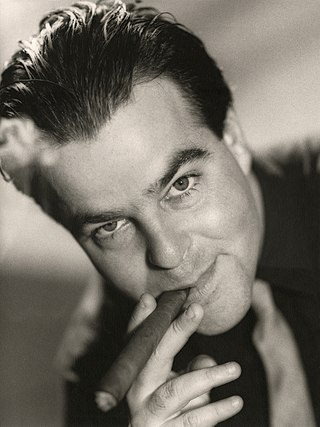
Adam Parfrey was an American journalist, editor, and the publisher of Feral House books, whose work in all three capacities frequently centered on unusual, extreme, or "forbidden" topics. A 2010 Seattle Weekly profile stated that "what Parfrey does is publish books that explore the marginal aspects of culture. And in many cases—at least back when his interests were almost exclusively transgressive—he sheds light on subjects that society prefers to leave unexplored, carving a niche catering to those of us with an unseemly obsession with life's darkest, most depraved sides."
Paladin Press was a book publishing firm founded in 1970 by Peder Lund and Robert K. Brown. The company published non-fiction books and videos covering a wide range of specialty topics, including personal and financial freedom, survivalism and preparedness, firearms and shooting, various martial arts and self-defense, military and police tactics, investigation techniques, spying, lockpicking, sabotage, revenge, knives and knife fighting, explosives, and other "action topics". Sometimes described as the "most dangerous publisher in the world", it was sued over several murders connected to one of its books, and ceased operations in January 2018.
Claire Wolfe is an American libertarian author and columnist. Some of Wolfe's favored topics are gulching or homesteading, firearms, homeschooling, open source technology, and opposition to national ID and the surveillance state or nanny state.
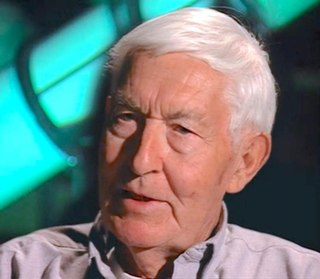
Bill Kaysing was an American author and conspiracy theorist who claimed that the Apollo Moon landings between 1969 and 1972 were hoaxes.

Open Library is an online project intended to create "one web page for every book ever published". Created by Aaron Swartz, Brewster Kahle, Alexis Rossi, Anand Chitipothu, and Rebecca Hargrave Malamud, Open Library is a project of the Internet Archive, a nonprofit organization. It has been funded in part by grants from the California State Library and the Kahle/Austin Foundation. Open Library provides online digital copies in multiple formats, created from images of many public domain, out-of-print, and in-print books.

Hit Man: A Technical Manual for Independent Contractors is a book written under the pseudonym Rex Feral and published by Paladin Press in 1983. Paladin Press owner Peder Lund claimed, in an interview with 60 Minutes, that the book started life as a detailed crime novel written by a Florida housewife, and that the format was later changed to appeal to Paladin's reader base accustomed to the publisher's non-fiction books on military, survivalist, weapons and similar topics. The book portrays itself as a how-to manual on starting a career as a hit man, fulfilling contracts. However, after a number of lawsuits claiming that the book was used as a handbook in several murders, the publication of the book was stopped. It marked "the first time in American publishing history that a publisher has been held liable for a crime committed by a reader."

Laissez Faire Books (LFB) was a libertarian bookseller and publisher founded in 1972 by John Muller and Sharon Presley, and originally based in New York City. From 1982 to 2007, Laissez Faire Books operated as a division of the non-profit corporations Center for Independent Thought and Center for Libertarian Thought, both led by Andrea Millen Rich. Classic and contemporary works of libertarianism were published under the imprint Fox & Wilkes Books.

Warner Chappell Music, Inc. is an American music publishing company and a subsidiary of the Warner Music Group. Warner Chappell Music's catalog consists of over 1.4 million compositions and 150,000 composers, with offices in over 40 countries.
Ragnar Benson is the pen name of a prolific survivalist author who specializes in preparedness topics, particularly survival retreats, hunting, trapping, austere medicine, false identification, explosives, firearms, and improvised weapons.

Cengage Group is an American educational content, technology, and services company for higher education, K–12, professional, and library markets. It operates in more than 20 countries around the world.

The Principia Discordia is the first published Discordian religious text. It was written by Greg Hill with Kerry Wendell Thornley and others. The first edition was printed using Jim Garrison's Xerox printer in 1963. The second edition was published under the title Principia Discordia or How The West Was Lost in a limited edition of five copies in 1965. The phrase Principia Discordia, reminiscent of Isaac Newton's 1687 Principia Mathematica, is presumably intended to mean Discordant Principles, or Principles of Discordance.
Marie Cosindas was an American photographer. She was best known for her evocative still lifes and color portraits. Her use of color photography in her work distinguished her from other photographers in the 1960s and 1970s. Most of her photographs were portraits and pictures of objects like dolls, flowers, and masks.
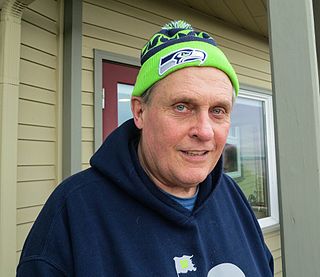
Dennis P. Eichhorn was an American writer, best known for his adult-oriented autobiographical comic book series Real Stuff. His stories, often involving, sex, drugs, and alcohol, have been compared to those of Jack Kerouac, Ken Kesey, and Charles Bukowski.
"Counterfeit for Murder" is a Nero Wolfe mystery novella by Rex Stout, first serialized as "The Counterfeiter's Knife" in three issues of The Saturday Evening Post. It first appeared in book form in the short-story collection Homicide Trinity, published by the Viking Press in 1962.

Adam Aristotle Starchild was a financial consultant, convicted fraudster, key figure in the "perpetual traveler" movement, and prolific author of books relating to investment, taxation, and the "offshore" world.
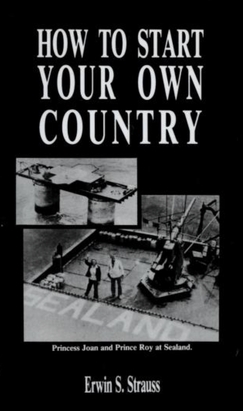
How to Start Your Own Country is an American non-fiction book written by Erwin S. Strauss about micronationalism, particularly its application to libertarianism and individualism. Strauss, who holds libertarian views, believes in the abolition of the power of the state. In How to Start Your Own Country, Strauss introduces five approaches that micronations may take in an attempt to achieve statehood, and documents various micronations and their mostly unsuccessful attempts at seceding. The first book published about micronations, How to Start Your Own Country was published in 1979, with subsequent editions in 1984 by Loompanics and in 1999 by Paladin Press. The book was well-received by critics.
















